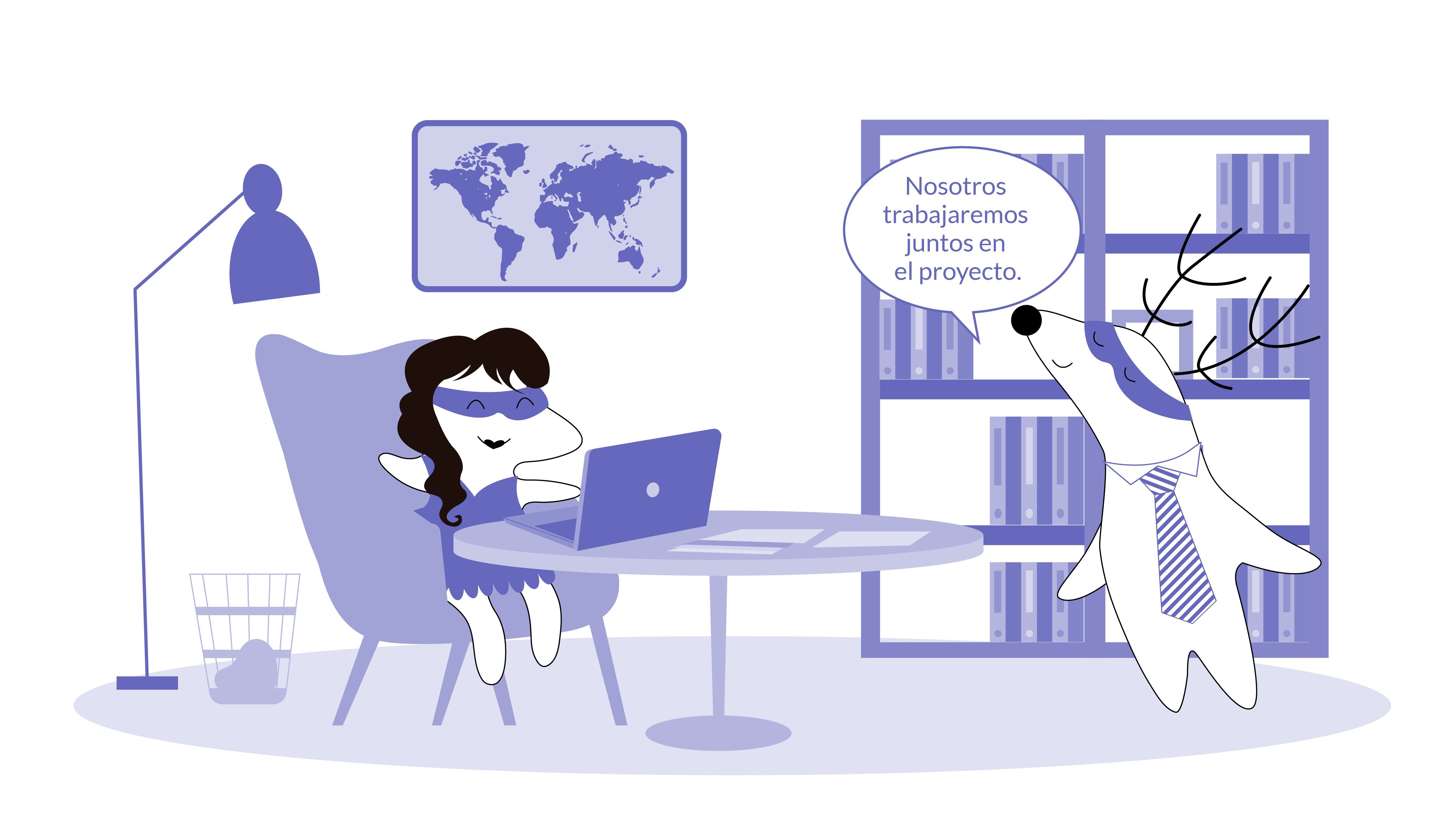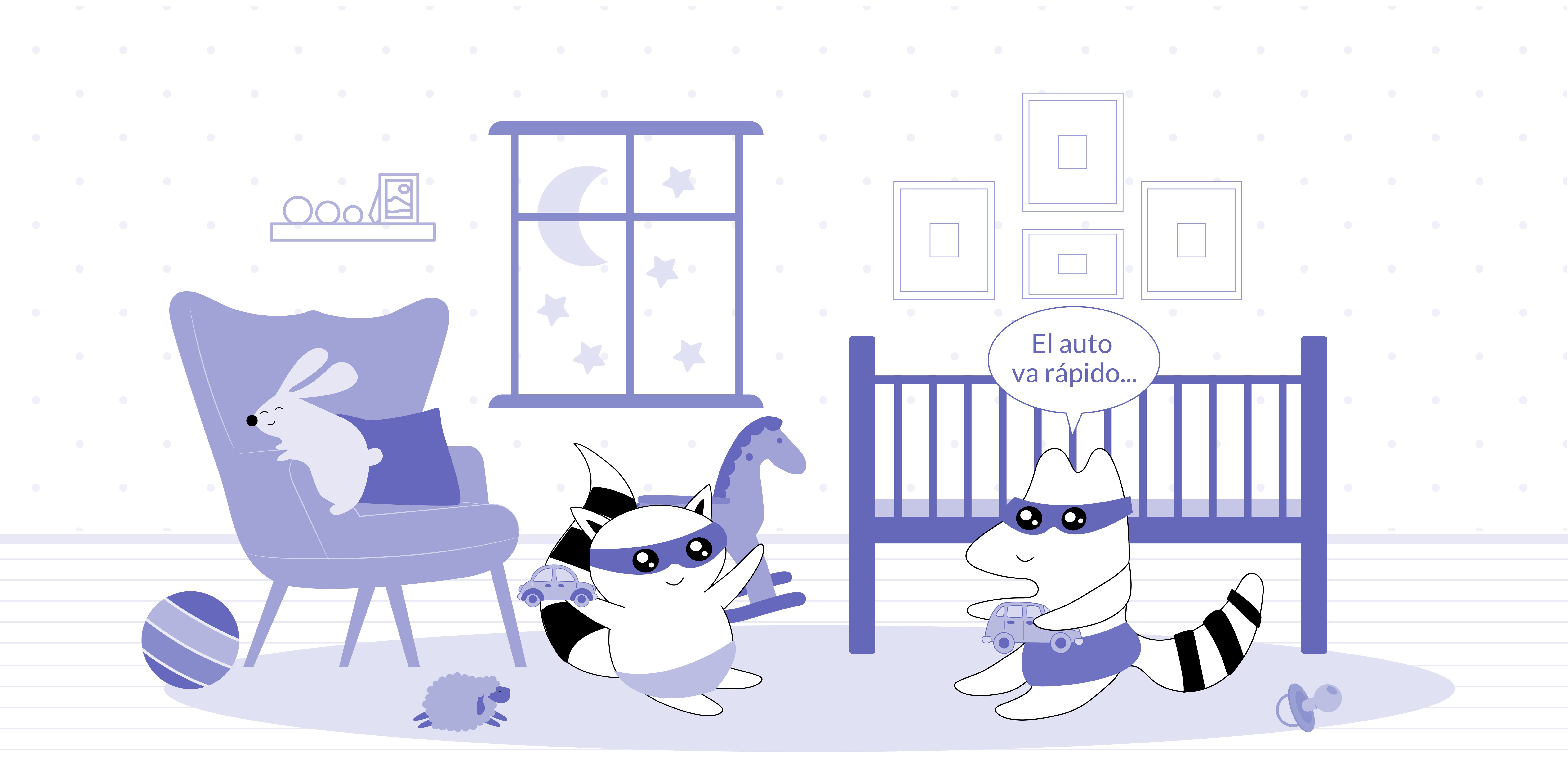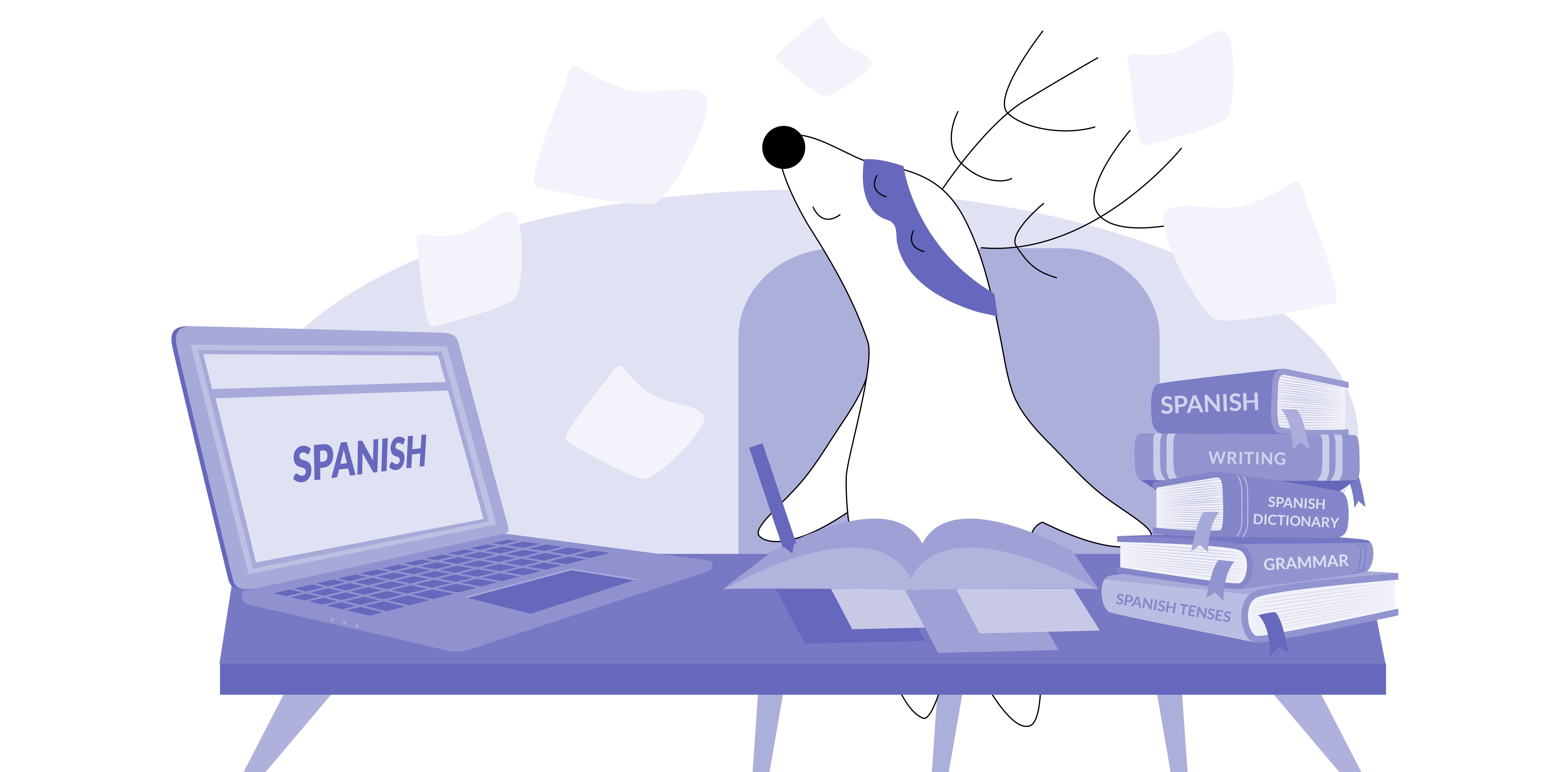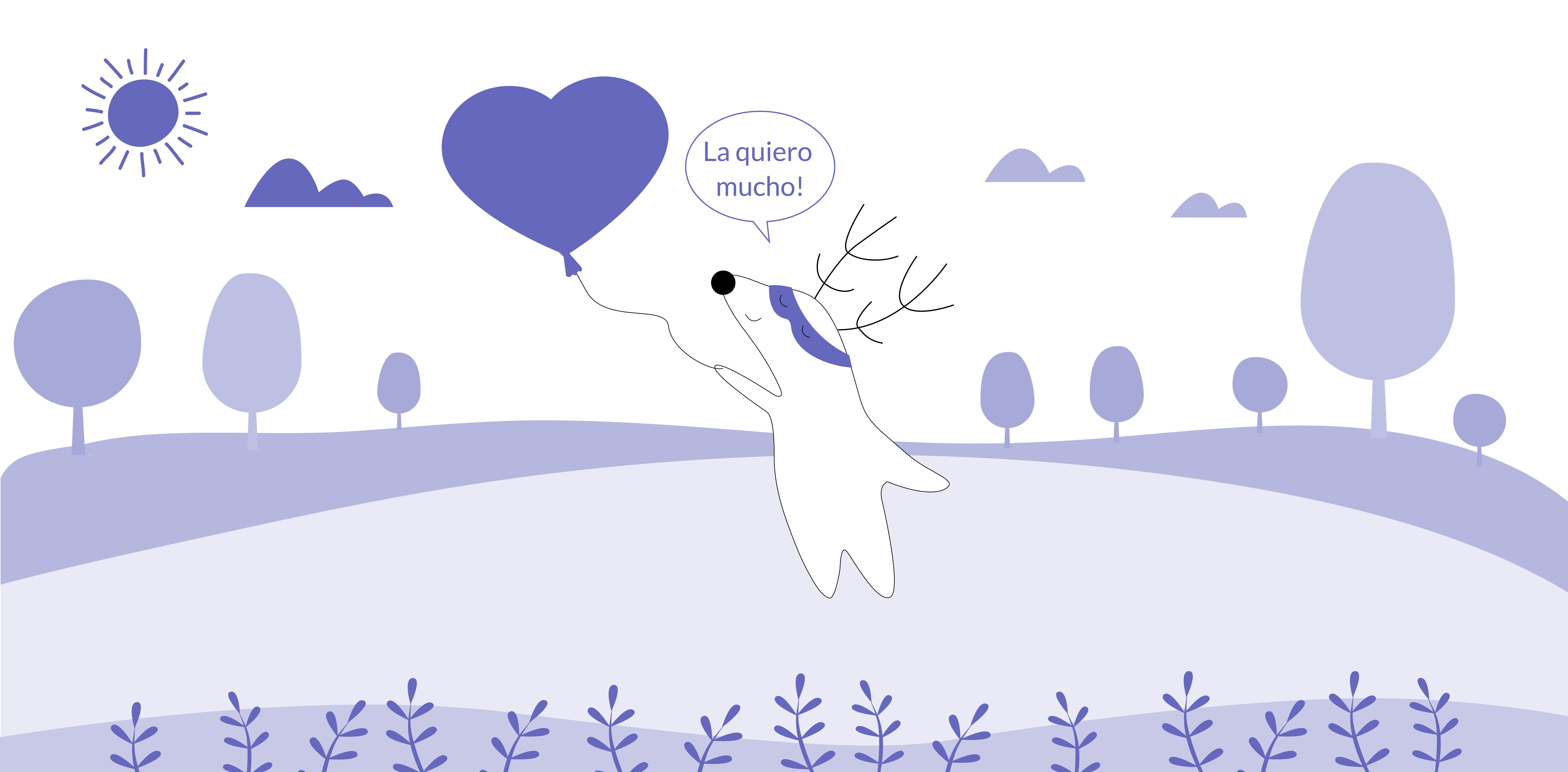
If you're a Spanish learner, you've probably encountered the fascinating world of verb tenses. Within the indicative mood, which serves as the foundation for expressing facts and opinions, there's a particular tense that deserves your attention: the future tense, which allows you to express future thoughts and plans.
In this article, we'll thoroughly explore the future tense and its practical applications, as well as provide you with practical examples to assist you in using it effectively during Spanish conversations. Whether you're a beginner or an intermediate learner, understanding the future tense Spanish is a valuable tool on your journey to mastering the language.
Learn Spanish with Langster
What Is the Future Tense?
In Spanish, the simple future tense is used to describe events or actions that will happen in the future — as opposed to the present tense, for example, which talks about events or actions currently happening.
It's used to talk about things that haven't occurred yet, but will take place at some point, maybe in the near future. You can think of the future tense as a way to make predictions or plans for the future.
Simple Future Tense (or Futuro Simple)
Futuro Simple tense in Spanish, also known as the "Simple Future" or "Future Indicative" tense, is used to express actions or events that will happen in the future.
This tense is relatively straightforward to conjugate and is used for actions that have not occurred yet but are expected to happen at some point in the future. Here's a detailed explanation and a conjugation table for regular verbs ending in -ar, -er, and -ir in the Futuro Simple tense.
Conjugation of Regular Verbs in Futuro Simple

To conjugate regular verbs in the future simple tense, you need to remove the -ar, -er, or -ir ending from the infinitive form of the verb and add the appropriate endings, which are the same for all regular verbs, regardless of their infinitive ending.
Here's the conjugation for regular verbs:
Verbs ending in -ar
| Spanish | English |
|---|---|
| Yo hablaré | I will speak |
| Tú hablarás | You will speak |
| Él/Ella/Usted hablará | He/She/You will speak |
| Nosotros/Nosotras hablaremos | We will speak |
| Vosotros/Vosotras hablaréis | You all will speak |
| Ellos/Ellas/Ustedes hablarán | They/You all will speak |
| Spanish | English |
|---|---|
| Yo hablaré | I will speak |
| Tú hablarás | You will speak |
| Él/Ella/Usted hablará | He/She/You will speak |
| Nosotros/Nosotras hablaremos | We will speak |
| Vosotros/Vosotras hablaréis | You all will speak |
| Ellos/Ellas/Ustedes hablarán | They/You all will speak |
Verbs ending in -er
| Spanish | English |
|---|---|
| Yo comeré | I will eat |
| Tú comerás | You will eat |
| Él/Ella/Usted comerá | He/She/You will eat |
| Nosotros/Nosotras comeremos | We will eat |
| Vosotros/Vosotras comeréis | You all will eat |
| Ellos/Ellas/Ustedes comerán | They/You all will eat |
| Spanish | English |
|---|---|
| Yo comeré | I will eat |
| Tú comerás | You will eat |
| Él/Ella/Usted comerá | He/She/You will eat |
| Nosotros/Nosotras comeremos | We will eat |
| Vosotros/Vosotras comeréis | You all will eat |
| Ellos/Ellas/Ustedes comerán | They/You all will eat |
Verbs ending in -ir
| Spanish | English |
|---|---|
| Yo viviré | I will live |
| Tú vivirás | You will live |
| Él/Ella/Usted vivirá | He/She/You will live |
| Nosotros/Nosotras viviremos | We will live |
| Vosotros/Vosotras viviréis | You all will live |
| Ellos/Ellas/Ustedes vivirán | They/You all will live |
| Spanish | English |
|---|---|
| Yo viviré | I will live |
| Tú vivirás | You will live |
| Él/Ella/Usted vivirá | He/She/You will live |
| Nosotros/Nosotras viviremos | We will live |
| Vosotros/Vosotras viviréis | You all will live |
| Ellos/Ellas/Ustedes vivirán | They/You all will live |
Let's have a look at some examples of the Spanish future tense in use:
Spanish
English
Yo estudiaré para el examen.
I will study for the exam.
Tú viajarás a España el próximo verano.
You will travel to Spain next summer.
Él leerá ese libro.
He will read that book.
Nosotros trabajaremos juntos en el proyecto.
We will work together on the project.
Vosotros aprenderéis nuevas habilidades.
You all will learn new skills.
Ellos no vendrán a la fiesta.
They will not come to the party.
All in all, the Spanish simple future is used to express actions in the future without implying any conditions or uncertainty. It's a valuable tense for describing future plans, predictions, or statements about future events. And, it's also easy to conjugate, even if the infinitive forms don't have the same endings.
Irregular Verbs in the Future Tense

While most regular verbs are relatively easy to put into the future tense, there are some irregular verbs that don't follow the standard pattern.
Here is an example of an irregular verb (ir) and how to conjugate it into the future tense:
Verb Ir (to go):
| Spanish | English |
|---|---|
| Yo iré | I will go |
| Tú irás | You will go |
| Él/Ella/Usted irá | He/She/You will go |
| Nosotros/Nosotras iremos | We will go |
| Vosotros/Vosotras iréis | You all will go |
| Ellos/Ellas/Ustedes irán | They/You all will go |
| Spanish | English |
|---|---|
| Yo iré | I will go |
| Tú irás | You will go |
| Él/Ella/Usted irá | He/She/You will go |
| Nosotros/Nosotras iremos | We will go |
| Vosotros/Vosotras iréis | You all will go |
| Ellos/Ellas/Ustedes irán | They/You all will go |
Example:
Spanish
English
El año próximo, yo iré de vacaciones a la playa.
Next year, I will go on vacation to the beach.
Future Perfect (Futuro Compuesto)
Futuro Compuesto tense in Spanish, also known as the "future perfect" tense, is used to express actions that will have been completed by a specific point in the future. It emphasizes the idea that an action will be finished before another action or time in the future.
To form the Futuro Compuesto tense, you use the future tense of the auxiliary verb haber (to have) followed by the past participle of the main verb. Here's a detailed explanation of the Futuro Compuesto tense.
Conjugation of Regular Verbs in Futuro Compuesto
Here are a couple of examples of verb conjugations in the compound future tense.
Future tense of the auxiliary verb haber
| Spanish | English |
|---|---|
| Yo habré | I will have |
| Tú habrás | You will have |
| Él/Ella/Usted habrá | He/She/You will have |
| Nosotros/Nosotras habremos | We will have |
| Vosotros/Vosotras habréis | You all will have |
| Ellos/Ellas/Ustedes habrán | They/You all will have |
| Spanish | English |
|---|---|
| Yo habré | I will have |
| Tú habrás | You will have |
| Él/Ella/Usted habrá | He/She/You will have |
| Nosotros/Nosotras habremos | We will have |
| Vosotros/Vosotras habréis | You all will have |
| Ellos/Ellas/Ustedes habrán | They/You all will have |
Past participle form of the main verb
The past participle is formed differently for -ar, -er, and -ir verbs.
- For -ar verbs, remove the -ar ending and add -ado. (e.g., hablar → hablado)
- For -er verbs, remove the -er ending and add -ido. (e.g., comer → comido)
- For -ir verbs, remove the -ir ending and add -ido. (e.g., vivir → vivido)
Here are a few examples to get a better grasp of these verbs in action:
Spanish
English
Yo habré terminado mi tarea para las 5 de la tarde.
I will have finished my homework by 5 PM.
Tú habrás llegado a casa antes que yo.
You will have arrived home before me.
Él habrá aprendido a tocar la guitarra para la fiesta.
He will have learned to play the guitar for the party.
The Futuro Compuesto tense is used to convey the idea of completed actions in the future, often in relation to other future events or time references. It emphasizes the notion of things being done or accomplished by a specific point in the future.
Examples of the Future Tense in Conversation

Now that we've covered the basics of the future tense, let's look at some examples of how to use it in conversation. Here are three examples of the future tense in action:
Example 1: Making Plans
In this example, we'll use the future tense to make plans for an upcoming trip:
Spanish
English
Vamos a viajar a España el próximo verano.
We're going to travel to Spain next summer.
Visitaremos Madrid y Barcelona.
We'll visit Madrid and Barcelona.
Comeremos paella y tapas.
We'll eat paella and tapas.
Example 2: Predicting the Future
In this example, we'll use the future tense to make predictions about a sporting event:
Spanish
English
El Real Madrid ganará la Liga este año.
Real Madrid will win the league this year.
Messi marcará el gol de la victoria.
Messi will score the game-winning goal.
Example 3: Discussing Goals
In this example, we'll use the future tense to talk about our goals for the future:
Spanish
English
Terminaré mi carrera universitaria el próximo año.
I will finish my university degree next year.
Aprenderé a hablar francés con fluidez.
I will learn to speak French fluently.
Final Thoughts

In conclusion, the future tense is an essential part of the Spanish language that allows us to talk about events and actions that haven't happened yet. Whether you're making plans for the future, predicting what's to come, or discussing your goals, the future tense is a crucial tool that will help you communicate effectively in Spanish.
If you're interested in learning Spanish or improving your language skills, consider Langster your go-to resource. Sign up for Langster today, and start your journey towards becoming fluent in Spanish!
Learn Spanish with Langster









